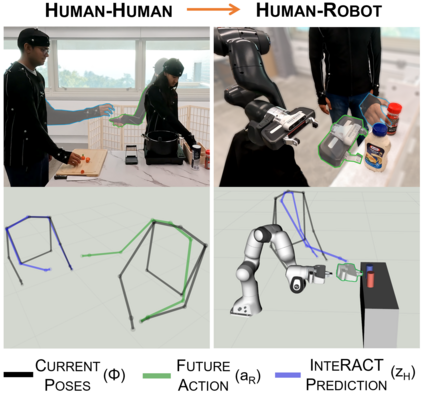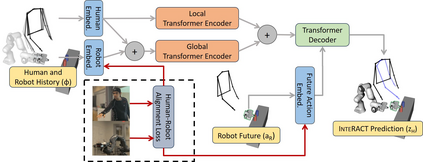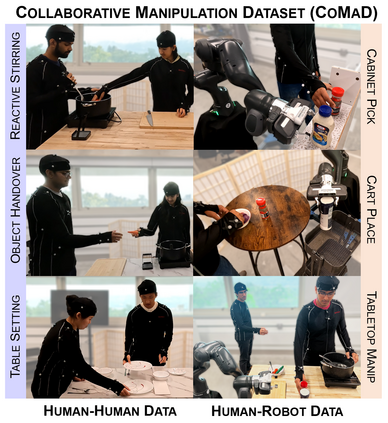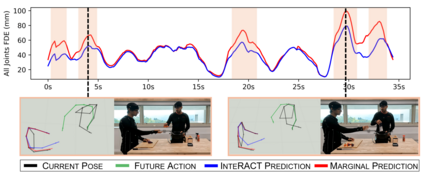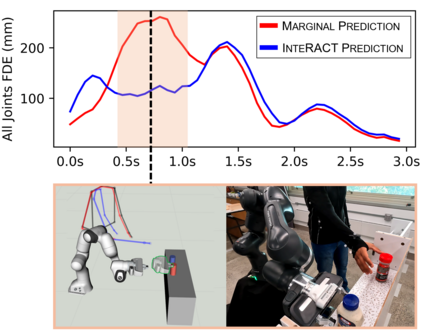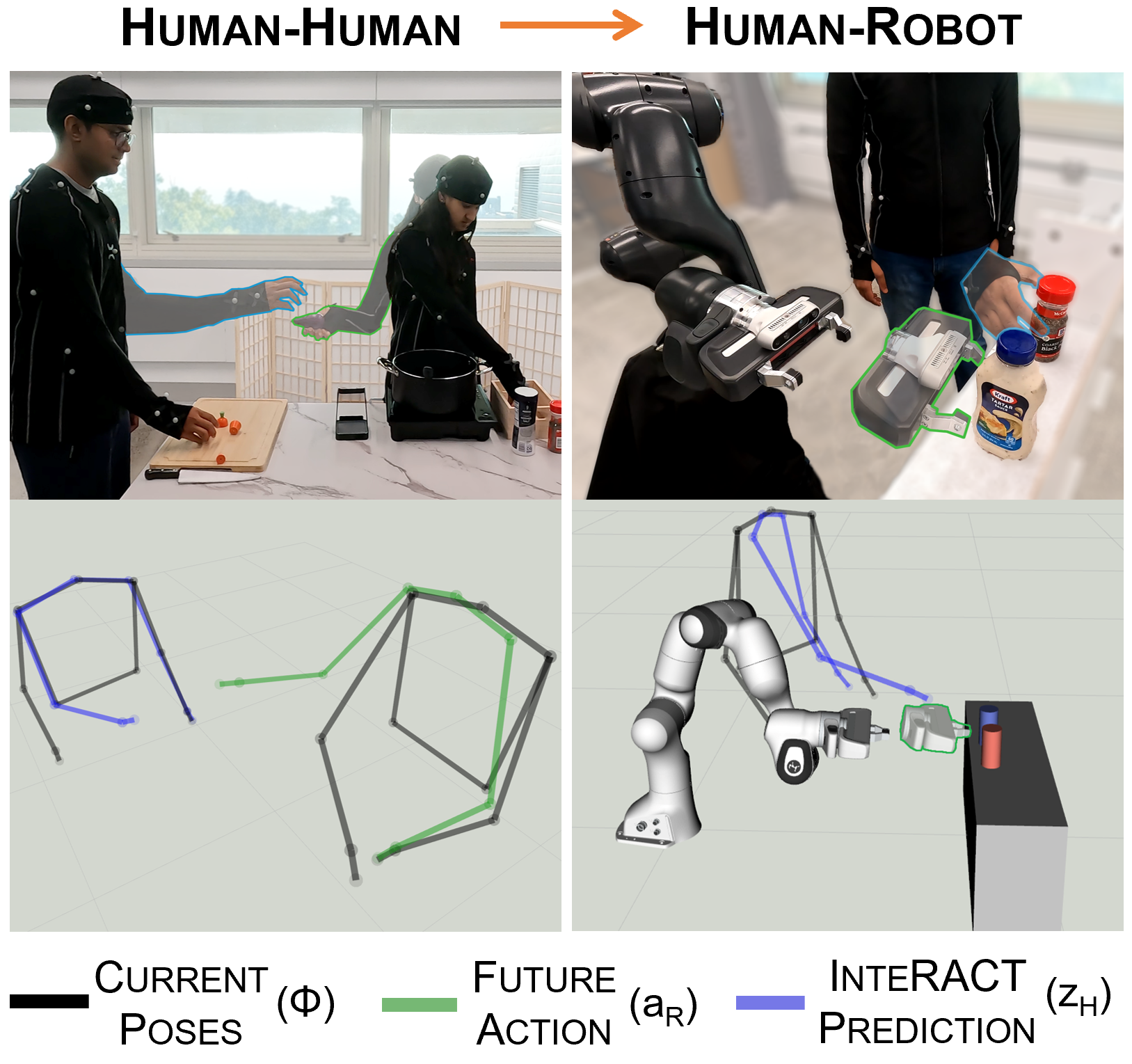In collaborative human-robot manipulation, a robot must predict human intents and adapt its actions accordingly to smoothly execute tasks. However, the human's intent in turn depends on actions the robot takes, creating a chicken-or-egg problem. Prior methods ignore such inter-dependency and instead train marginal intent prediction models independent of robot actions. This is because training conditional models is hard given a lack of paired human-robot interaction datasets. Can we instead leverage large-scale human-human interaction data that is more easily accessible? Our key insight is to exploit a correspondence between human and robot actions that enables transfer learning from human-human to human-robot data. We propose a novel architecture, InteRACT, that pre-trains a conditional intent prediction model on large human-human datasets and fine-tunes on a small human-robot dataset. We evaluate on a set of real-world collaborative human-robot manipulation tasks and show that our conditional model improves over various marginal baselines. We also introduce new techniques to tele-operate a 7-DoF robot arm and collect a diverse range of human-robot collaborative manipulation data, which we open-source.
翻译:暂无翻译

